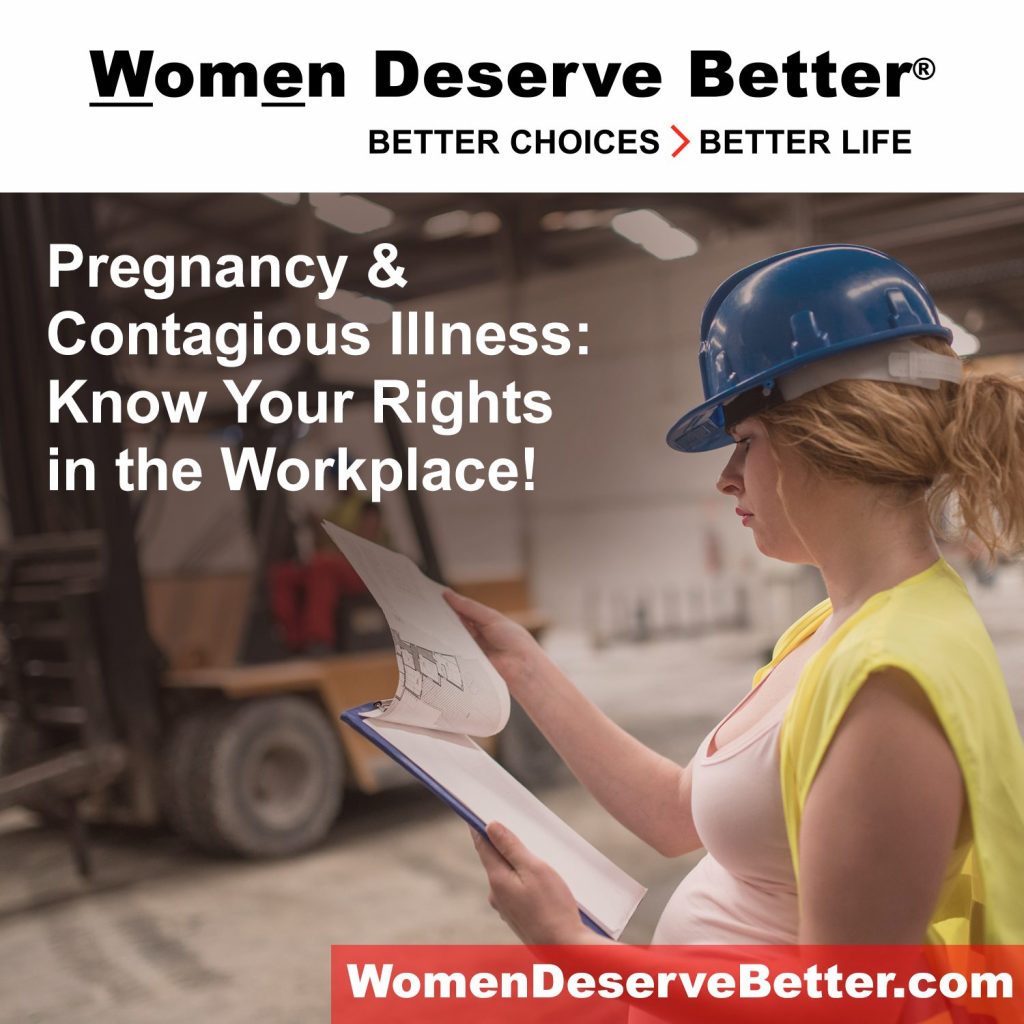
Did you know that women, and disproportionately women of color, are on the front lines during every respiratory virus season?
According to the Center for Economic Policy and Research, nearly two-thirds of frontline workers are women and people of color, who are overrepresented in industries such as:
- building custodians/housekeeping (90.7% female, 69.8% people of color),
- child care workers (95% female, 44.8% POC),
- home health care services (87.5% female, 53% POC),
- nursing care facilities (84.2% female, 44.6% POC),
- and cashiers (71.8% female, 44.6% POC)!
We know these workers are at risk, but what if they are pregnant? Do they have any rights?
The good news is: All of the protections for pregnant workers still exist!
Additionally, there are some health considerations pregnant workers can also access.
Generally speaking, laws are broken into either federal or state legislation.
Relevant federal laws include the Americans with Disabilities Act (ADA), the Pregnancy Discrimination Act (PDA), and the Family and Medical Leave Act (FMLA). How does each law help?
ADA: If you need accommodations due to a pregnancy related impairment, the ADA protects you. Examples of this can include, but is not limited to: gestational diabetes, preeclampsia, and heart abnormalities. Just being pregnant does not protect you under this act, but having any related pregnancy complications can. That means you are entitled to reasonable accommodations based on your doctor’s recommendations! This can include being transferred to different duties, teleworking, or working behind the scenes, instead of with the public.
PDA: The Pregnancy Discrimination Act assures that all workers are treated the same, regardless of pregnancy status. The actions taken either for or against a pregnant worker cannot be solely based on her pregnancy. This is to help protect situations where a woman may be fired/laid off/let go simply because she is pregnant but other workers get to stay.
Please Note: 29 states have state-level laws that are called Pregnant Workers Fairness Laws, and these tend to complement the federal PDA. Under the state laws, they go one step further and say not only can you not terminate/lay off a pregnant worker, but reasonable accommodations should also be available, such as added restroom breaks, lactation time, reducing lifting heavy weight, etc.
FMLA: The Family and Medical Leave Act is what protects workers from losing their jobs (but does not pay them) while they take time off to care for a family/medical situation.
The Families First Coronavirus Response Act was put in place to augment the FMLA when that family or medical situation relates to COVID-19. If you need to take time off specifically due to a COVID-19 diagnosis or symptoms for yourself or a family member, or if your child’s school or day care was closed due to COVID-19. This is 80 hours of paid leave, but this law is only in effect through the 2020 calendar year. Receiving this type of pandemic assistance may not affect your FMLA, so you could still use that later or in conjunction with it.
It is important as a pregnant worker to stay in close contact with your supervisor or company’s HR department. They are the ones who implement any accommodations and answer company-specific questions. Keep in mind the law sets in motion an interactive, conversational process between the worker and company. Ideally, each situation is individualized.
If you find that you are not being treated fairly, or the conversation is not happening, you can then contact your local Equal Employment Opportunity Commission (EEOC).
The source for this information and more details about these laws can be found at A Better Balance.
You and your unborn child have a right to health!
By Joyce McCauley-Benner, Editor

